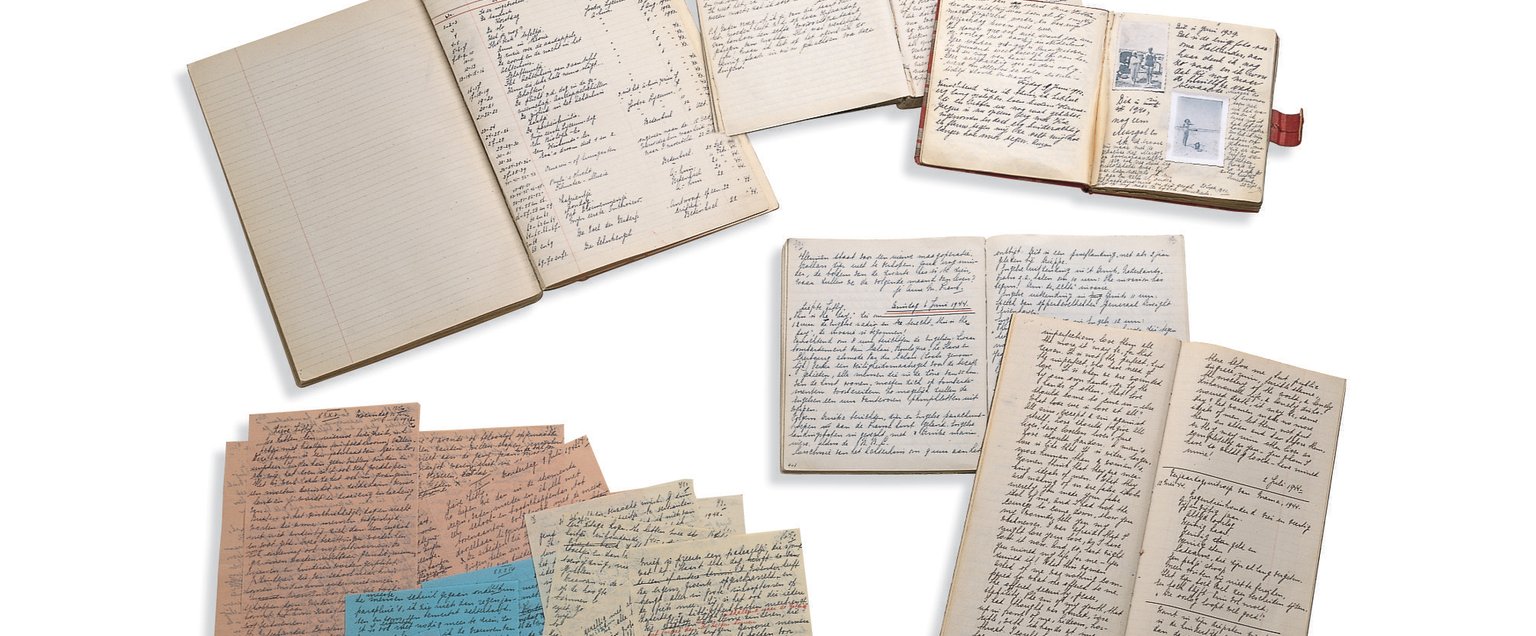The Huygens Institute for the History of the Netherlands (Huygens ING) partnered with the Anne Frank House to study Anne Frank’s diaries, her own adaptation of them into a ‘Secret Annex novel’, her short stories and her other works. The manuscripts were compiled to produce this new edition, which also provides historical background information and comparative analyses. Anne Frank’s development as a writer has never before been so well documented.
The initiative for the new edition came from the Anne Frank House, which also examined the historical context of the manuscripts and made many of the images available. The research carried out by Huygens ING and the Anne Frank House has led not only to new insights but also to an innovative digital edition that gives researchers and enthusiasts a fascinating glimpse of how Anne Frank wrote and rewrote her texts.
The diary and the ‘Secret Annex novel’
Anne Frank’s diary is the most-read Dutch-language book in the world. What few people know is that while Anne was in hiding, she began to rewrite her diary as a novel, which she called The Secret Annex. She used her diary as a basis but looked critically at her earlier entries and carefully selected what she would and would not disclose to the outside world. She moved passages and rewrote diary entries, adapting them for her novel. For example, in The Secret Annex she accentuates the oppressiveness of being forced to stay indoors. Anne was unable to complete her novel. After the war, Anne’s father Otto Frank had his daughter’s manuscripts published under her chosen title, The Secret Annex (1947). He compiled the book from Anne’s diary, her novel and some of the events in The Secret Annex that she describes in her storybook.
Outbursts against mother
The new online scholarly edition features Anne Frank’s diary and her ‘Secret Annex novel’ as separate manuscripts, both in their entirety. Editor/researcher Peter de Bruijn (Huygens ING) examined the similarities and differences between the two texts in detail. He discovered that it is untrue that Anne rewrote her diary to omit most of her outbursts against her mother. ‘In fact, Anne inserted a number of unmistakable letters on the subject of “mother” into the manuscript, making it one of the storylines of The Secret Annex,’ De Bruijn concludes.
‘The English radio says they’re being gassed’
The Anne Frank House has worked with Huygens ING to examine which facts about the war and circumstances in the world outside were known at what point, how this information could have trickled through to the Secret Annex, and how Anne herself described them. These insights have led to a better understanding of the literary liberties that Anne took when rewriting her diary, whether consciously or unconsciously. For example, although Anne describes the bounties being paid to turn in Jews in her Secret Annex letters of 1942, it is now clear that that she did so based on later knowledge, since the bounty system was not introduced until 1943. She did not use the term ‘gassing’ in her diary when she wrote about Jews being deported to Poland in 1942, but in The Secret Annex she added the following to the corresponding passage: ‘The English radio says they’re being gassed’.
Pasted-in photographs and ink stains
Finally, this edition also describes in detail the material aspects of the manuscripts, including the writing materials used, ink stains, tears and creases, and other details. The red-checked diary is a particularly fascinating but complex source in this connection, because Anne later pasted in photographs, letters and other documents and made numerous annotations and additions to her diary as she leafed through it.
Copyright
Because the copyright to a number of Anne Frank's texts has not yet expired in the Netherlands, part of the research, such as the transcriptions of Anne Frank's diaries, took place in Belgium. The online scholarly edition is only accessible in those countries where the copyright law on Anne Frank’s Texts so admits. In Belgium, Germany, the Netherlands Antilles and other countries, some 60 in all, this edition is available to everyone online at www.annefrankmanuscripten.org. Through geo blocking the availability is limited to those countries. In the Netherlands and a number of other countries the online scholarly edition is not accessible due to copyright regulations. An English translation of this edition will be made available later in those countries where copyright law so permits.
The online scholarly edition of the complete manuscripts of Anne Frank is published by the Vereniging voor Onderzoek en Ontsluiting van Historische Teksten (Association for Research and Access to Historical Texts), Avenue Louise 209a / Louizalaan 209a, 1050 Brussels (Belgium). info@annefrankmanuscripten.org
